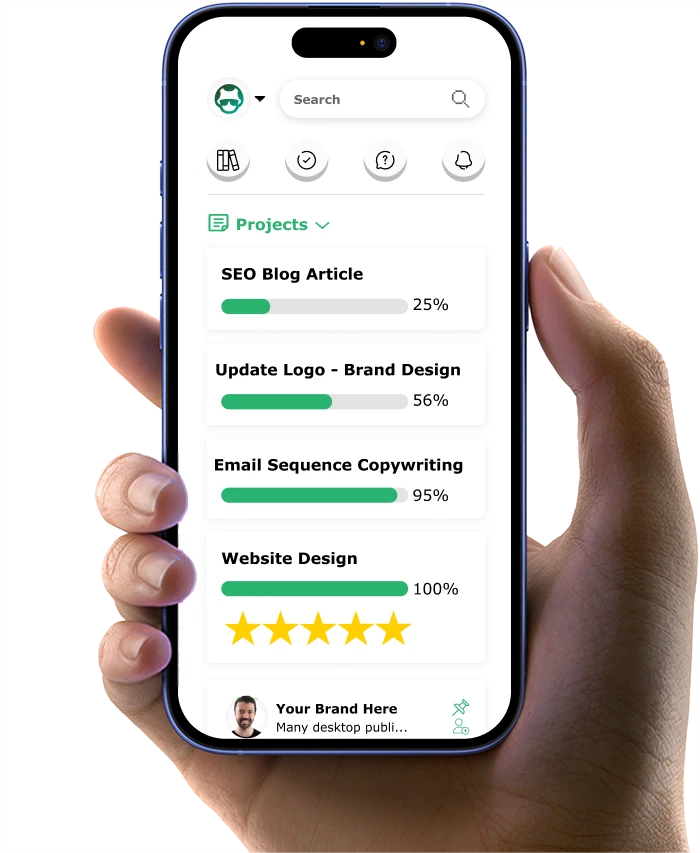7 Legal Blog Tips: Write Posts People Read

Writing effective legal blog posts can be a game changer for your law firm. In a world where clients search online for legal help, your blog is a vital tool to connect with them.
Many law firms struggle to stand out. They often have the expertise but lack the visibility needed to attract new clients. This is where a strong blogging strategy comes into play. By sharing valuable insights, you can engage potential clients and showcase your knowledge.
But how do you create blog posts that truly resonate? The key lies in understanding your audience and providing content that answers their questions. This article will guide you through essential strategies to write legal blog posts that attract clients.
After reading this article, you will uncover:
- The secret formula for crafting headlines that grab attention immediately.
- How to discover your audience’s needs and turn your blog into a client magnet.
- The unexpected power of storytelling in making legal topics relatable.
- Simple SEO techniques that can elevate your blog’s visibility in a crowded market.
- Practical tips that empower you to provide real value and build trust with readers.
Let’s dive into how to effectively engage your audience with your legal blog posts...
If you want to get your marketing work done for your business (or for your clients’), then you HAVE to learn more how you can delegate unlimited marketing projects & tasks without the headaches of hiring. Download this free guide: 33 Examples of Marketing Projects You Can Delegate to Growbo
Lead Generation Tip #1: Who Needs Your Legal Expertise? Finding Your Perfect Clients
Understanding your ideal client is a fundamental step in writing effective legal blog posts. When you know who your audience is, you can tailor your content to meet their specific needs and interests. This approach not only helps in creating relevant blog topics but also enhances engagement and conversion rates. According to marketixdigital, 80% of consumers expect businesses to deliver personalized content tailored to their preferences, behavior, and needs. By identifying what potential clients are looking for, you can provide valuable information that resonates with them.
Moreover, knowing your audience allows you to address their pain points directly. For instance, if your target clients are facing challenges with a specific legal issue, writing blog posts that offer solutions or insights into that problem can establish your authority in the field. This not only builds trust but also positions you as a go-to resource for legal advice. As you craft your content, remember to keep the focus on your readers and how your services can help them navigate their legal challenges.
This in an example of a specific legal topic:
Lead Generation Tip #2: Headlines That Make Legal Readers Stop Scrolling
Creating irresistible headlines is essential for attracting readers to your legal blog posts. The headline is often the first impression potential clients will have of your content, and it plays a crucial role in determining whether they click through to read more. A compelling headline not only grabs attention but also communicates the value of the content that follows. According to a HubSpot study, 80% of readers will not read past a blog’s headline. This means that a well-crafted headline can lead to more readers engaging with your posts.
To create effective headlines, consider incorporating keywords that your target audience is searching for. This not only helps with search engine optimization (SEO) but also ensures that your content appears relevant to potential readers. For instance, a headline like "Top 5 Legal Tips for Startups to Avoid Common Pitfalls" immediately informs the reader about the content while also appealing to a specific audience.
Additionally, using numbers and clear language can make your headlines more attractive. Research shows that headlines with numbers tend to perform better, as they promise specific information that readers can expect to gain.
Lead Generation Tip #3: Climbing the Google Ranks: Smart SEO for Law Firms
Mastering SEO is crucial for ensuring that your legal content reaches the intended audience effectively. In a digital landscape where countless blogs compete for attention, optimizing your posts for search engines can significantly enhance your visibility. Research from Linkedin shows that websites with blog content generate 434% more indexed pages and 97% more inbound links than those without blogs .SEO is essential for driving traffic to legal blogs, making it a key component of successful content marketing strategies.
To improve your SEO, start by researching relevant keywords that potential clients might use when searching for legal information. Incorporating these keywords naturally into your blog posts can help search engines understand the content of your articles, improving your chances of ranking higher in search results. For example, using phrases like "legal advice for startups" or "how to handle a personal injury claim" can attract readers who are specifically looking for that information.
Additionally, consider optimizing other elements of your blog, such as meta descriptions and image alt texts. These components contribute to your overall SEO strategy and can enhance user experience. A well-optimized blog not only attracts more visitors but also establishes your credibility as an authority in the legal field. By focusing on SEO, you can ensure that your valuable content reaches those who need it most.
Lead Generation Tip#4: Client Stories That Connect - Building Trust Through Narrative
Storytelling is a powerful tool in legal blogging that can make complex information more relatable and engaging for your audience. When you tell a story, you create a narrative that draws readers in and helps them connect with your content on a personal level. This is particularly important in the legal field, where concepts can often seem abstract or intimidating. A study from Add a Little Digital reports that engaging narratives can increase audience engagement by up to 300%.
When crafting your blog posts, consider incorporating real-life examples or case studies that illustrate the legal issues you are discussing. For instance, if you are writing about family law, sharing a story about a successful mediation can provide valuable insights while also demonstrating your expertise. This approach not only humanizes your content but also builds trust with your readers, as they can see how your services can positively impact their lives.
Additionally, using a narrative structure can help guide readers through your content. Start with a compelling hook, present the conflict or issue, and then lead them to a resolution. This format keeps readers engaged and encourages them to continue reading. By weaving stories into your legal blog posts, you can create a more inviting and informative experience for your audience.
Lead Generation Tip #5: Actionable Advice: Legal Tips Your Readers Can Use Today
Sharing practical legal tips in your blog posts is an effective way to establish authority and build trust with potential clients. When you provide actionable insights, you not only demonstrate your expertise but also show that you genuinely care about helping your audience navigate their legal challenges. According to Growlawfirm, 74% of consumers use a search engine to find legal advice.
To make your tips more impactful, focus on common legal issues that your target audience faces. For example, if you specialize in personal injury law, you might share tips on what to do immediately after an accident or how to gather evidence for a claim. By addressing specific concerns, you provide readers with information that is directly applicable to their situations. This approach not only helps them feel more informed but also positions you as a trusted resource.
Furthermore, consider formatting your tips in a list or bullet-point style for easy readability. This makes it simpler for readers to digest the information and refer back to it when needed. Remember, the goal is to empower your audience with knowledge that can aid them in making informed decisions regarding their legal matters.
Lead Generation Tip #6: Enhance Your Posts with Visuals
Enhancing your legal blog posts with visuals can significantly improve reader engagement and retention. In a world where attention spans are shorter than ever, incorporating images, infographics, and videos can help break up text and make your content more inviting. Visual elements not only complement your written content but also simplify complex legal information. Research from SproutWorth shows that articles with relevant images get 94% more total views than those without, making it a valuable tool for legal bloggers.
When selecting visuals for your blog posts, choose images that are relevant to the topic and enhance the message you are conveying. For example, if you are discussing family law, including images that depict family interactions or infographics that outline the legal process can provide context and clarity. Additionally, using charts or graphs to illustrate statistics can make the data more accessible and engaging for your readers.
It’s also crucial to ensure that your visuals are high-quality and professionally presented. Poor-quality images can detract from your credibility and make your blog appear less trustworthy. By investing time in selecting and creating quality visuals, you enhance the overall appeal of your blog and create a more enjoyable reading experience for your audience.
Lead Generation Tip #7: Spread the Word About Your Blog
Spreading the word about your legal blog is essential for increasing visibility and attracting potential clients. Even the best-written blog posts can go unnoticed if they are not effectively promoted. Utilizing various channels to share your content can significantly enhance your reach and engagement. Comrade web reports that 84% of law firms have obtained leads through organic social media traffic, making it a vital part of your content marketing strategy.
To maximize your blog's exposure, start by sharing your posts on social media platforms where your target audience is active. Platforms like Facebook, LinkedIn, and Twitter are great for connecting with potential clients. Consider creating eye-catching graphics or snippets from your blog to accompany your posts, as these can entice users to click through and read the full article. Engaging with your audience by responding to comments and participating in discussions can also help build a community around your blog.
Another effective strategy is to collaborate with other professionals in your field. Guest blogging on reputable websites or inviting guest contributors to your blog can introduce your content to new audiences. By actively promoting your blog and collaborating with others, you can significantly increase your content's visibility and attract more potential clients.
If you want to get your marketing work done for your business (or for your clients’), then you HAVE to learn more how you can delegate unlimited marketing projects & tasks without the headaches of hiring. Download this free guide: 33 Examples of Marketing Projects You Can Delegate to Growbo
CONCLUSION
Writing effective legal blog posts goes beyond sharing knowledge; it's about connecting with your audience and helping them navigate their legal challenges. By focusing on your ideal clients, crafting engaging headlines, and mastering SEO, you can enhance your blog's visibility and effectiveness. Storytelling and practical tips make your content relatable, while high-quality visuals capture attention and improve understanding.
Key insights from this article include:
- Understand Your Audience: Research and know your ideal clients to tailor your content specifically to their needs.
- Craft Compelling Headlines: Use engaging and keyword-rich headlines to attract more readers.
- Master SEO Techniques: Optimize your content for search engines to increase visibility and attract a wider audience.
- Incorporate Storytelling: Use narratives to make complex legal topics more relatable.
- Provide Actionable Tips: Share practical advice that empowers your readers and builds trust.
- Enhance with Visuals: Use images and infographics to make your blog visually appealing.
- Promote Your Blog: Share your content on social media to reach more potential clients.
By applying these seven proven legal blog writing tips, you can consistently attract the right audience, build trust, and turn readers into qualified leads for your law firm.
If you're ready to create content that not only informs but drives real client interest, we’ve got your back. Growbo’s expert team can help you develop a high-impact legal content strategy tailored to your practice. From topic research to optimized blog formatting—we handle every step.
- Personalized content strategy for your niche
- SEO-focused legal blog creation
- Professionally written and designed content
- No long-term contracts or commitments
Book a call today and start turning blog readers into loyal clients. Got questions about legal blog marketing? Let’s talk in the comments below.
Keep Growin', Stay Focused,
Image Credits:
1 - https://www.google.com/
2 - https://www.zahavianlegalmarketing.com/blogging-for-lawyers/
3 - https://www.onthemap.com/seo-for-attorneys/
4 - https://www.603legalaid.org/603-legal-aid-blog/css-resolving-tax-liability
5 - https://www.katescott.co/blog/blog-legally























